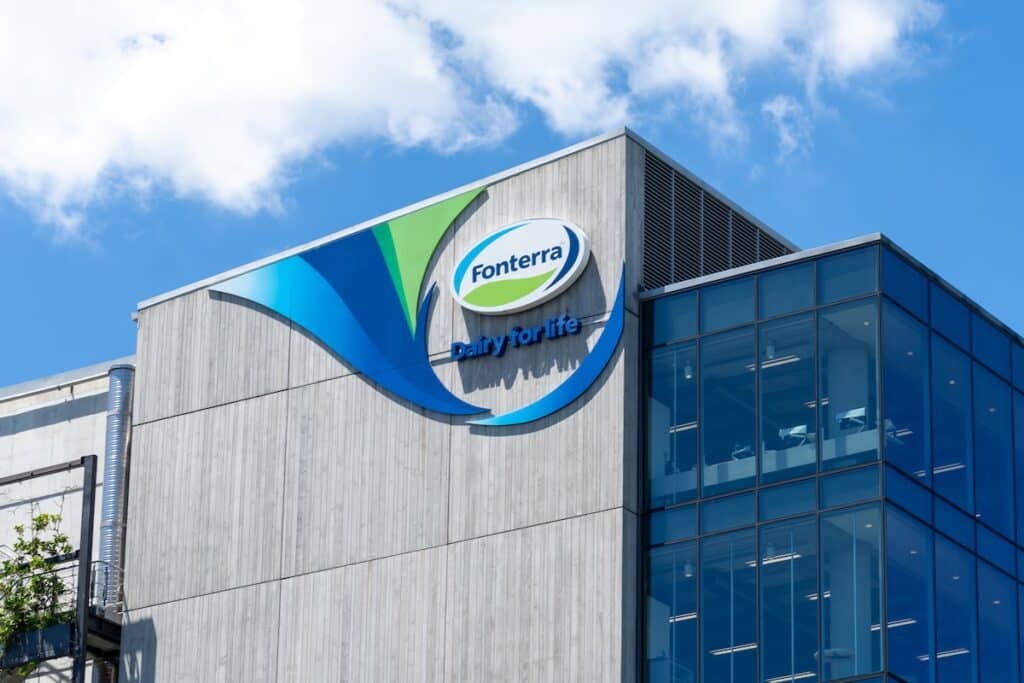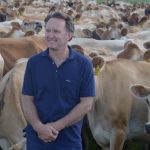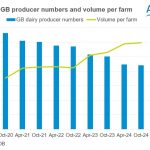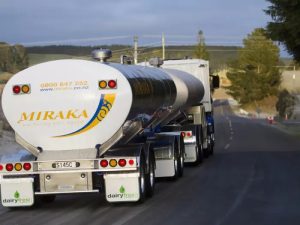
Fonterra is set to convert two coal boilers to wood pellets at its Clandeboye site in South Canterbury, a crucial step in Fonterra’s commitment to exit coal by 2037.
The $64 million investment will cut the Co-operative’s overall emissions by nine per cent with reductions totalling 155,000 tonnes of CO2e each year, the equivalent of removing more than 64,000 cars from New Zealand roads each year.
Fonterra Chief Operating Officer Anna Palairet says the project marks a significant milestone in Fonterra’s sustainability journey as it works towards a 50.4% reduction in absolute Scope 1&2 emissions by 2030, from a 2018 baseline.
“This conversion project at Clandeboye is another demonstration of our Co-op’s commitment to sustainability and climate action and follows successful boiler conversions at our Te Awamutu, and Hautapu sites.
“In making our largest decarbonisation investment to date, we’re reducing our environmental impact – while securing operational resilience. This project represents a significant milestone in our journey towards a coal-free future”
Fonterra’s Site Operations Manager – Cheese and Protein, Conrad Harle echoes this sentiment believing the investment will drive fuel diversity in the South Island by providing the demand signals to establish wood pellet supply chains in the region.
“The move to wood pellets for the Clandeboye site is a great thing for the South Island as it will play a role in diversifying the country’s renewable energy options while strengthening fuel optionality at the site.
[p”The team at Clandeboye are both proud and excited to play a role in the establishment of these regional supply chains that give added resilience and further options for future decarbonisation investments at our other sites, primarily Darfield, Studholme, Tākaka, and Edendale”[/p]
The conversion is co-funded as part of a previously announced EECA (Energy Efficiency and Conservation Authority) partnership. The partnership agreement includes the Co-op achieving approximately 1.2 million tonnes of CO2 cumulative reductions from its coal reduction activities this decade, enabling the Co-op to lift its 2030 target from a 30% to a 50% absolute reduction by 2030.
EECA Chief Executive, Dr Marcos Pelenur, says it is encouraging to see Fonterra continue to progress their emissions reduction programme.
“It is a milestone that once again highlights the central role of biofuel in the clean energy space and the use of clever technology in increasing energy efficiency”
The conversion of the two boilers is scheduled to be completed and operational by September 2025. Plans to transition the site’s remaining boilers onto renewable energy will continue as part of the Co-operative’s wider decarbonisation plans.
The site has recently completed another decarbonisation project with the installation of a heat recovery system in its lactose plant back in February 2024. This was the first project co-funded under EECA for the Co-operative focusing on energy efficiency. The new system allows the recovery of high-grade heat from the lactose plant’s equipment, saving the site 2.5 tonnes of steam per hour and decreasing annual carbon emissions by around 3,000 tonnes – the equivalent of removing around 1,250 cars from New Zealand roads.
Further details on the Co-op’s work to reduce emissions associated with manufacturing:
Coal free in manufacturing operations in the North Island (November 2024): With the turning off of the Co-op’s Waitoa site’s last coal boiler, the Co-op announced it was now out of coal in the North Island. Work continues to transition the five sites in the South Island that still use coal.
Edendale electrode boiler (October 2024): The Co-op’s first electrode boiler powered up in October this year, generating steam from electricity, and cutting the site’s annual overall emissions by 20% or around 47,500 tonnes – the equivalent of removing around 20,000 cars from New Zealand roads.
Hautapu boiler conversion (August 2024): Conversion from coal to wood pellets, with an expected annual emissions reduction of around 12,000 tonnes – the equivalent of removing around 6,500 cars from New Zealand roads.
Clandeboye heat recovery project (February 2024): The new heat recovery system in the Lactose plant aims to decrease annual carbon emissions by around 3,000 tonnes – the equivalent of removing around 1,250 cars from New Zealand roads.
Waitoa wood biomass boiler (October 2024): The new boiler at Waitoa has halved coal usage at the site, cutting emissions by around 46,000 tonnes annually – the equivalent of removing around 20,000 cars from New Zealand roads.
Whareroa heat pumps (September 2023): Installation of New Zealand’s largest heat pumps as part of a refrigeration upgrade, decreasing annual carbon emissions by around 9,100 tonnes – the equivalent of removing around 3,800 cars from New Zealand roads.
Stirling biomass boiler (August 2023): Stirling’s wood biomass boiler has reduced annual carbon emissions by around 18,500 tonnes – the equivalent of removing around 7,700 cars from New Zealand roads – and is the Co-op’s first site running on 100% renewable thermal energy.
Te Awamutu boiler conversion (August 2020): Converted the coal boiler to use wood pellets, reducing coal use and emissions by around 84,000 tonnes – the equivalent of removing around 35,000 cars from New Zealand roads.
Brightwater biomass co-firing (September 2018): Moved to co-firing wood biomass, reducing overall annual site carbon emissions by around 2,400 tonnes – the equivalent of removing around 530 cars from New Zealand roads.
View the Clandeboye Fact Sheet here.
You can now read the most important #news on #eDairyNews #Whatsapp channels!!!
🇺🇸 eDairy News INGLÊS: https://whatsapp.com/channel/0029VaKsjzGDTkJyIN6hcP1K
























